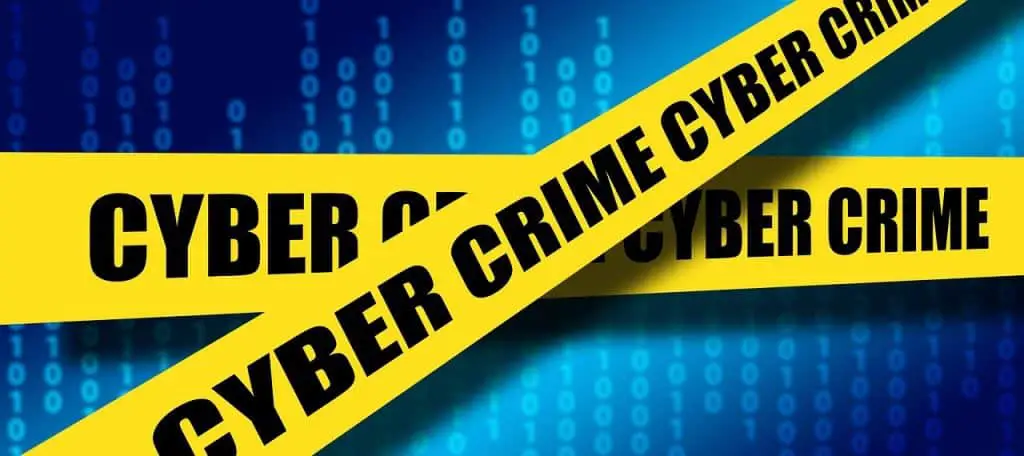Dusting for fingerprints; matching shell casings to a gun; identifying the trajectory of a bullet; analyzing the DNA samples found at a crime scene. If all these sound interesting to you, then keep reading. And, no – this isn’t a prelude to a hot new crime series.
They are, in fact, different types of forensic careers that you can pursue to become a real-life crime-buster. This guide takes a deep dive into the world of forensics to help you figure out if it’s right for you.
Definition of Forensics
Forensics refers to the scientific methods employed to solve crimes. It involves the collection and analysis of crime-related evidence to draw a plausible conclusion about who committed the offense. A forensic investigation may involve anything from looking at blood, fluid, residue, and fingerprints to electronics like PCs, hard drives, or any other digital technology to establish how a crime was committed.

This is a very broad definition of the term since forensics involves so much more depending on the specific branch you specialize in. If you’re thinking of pursuing a career in forensics, there’s no doubt that you’ll find it to be one of the most rewarding jobs out there.
It’s not your typical nine-to-five job. Every day brings with it new challenges. So, rest assured that the chances of you getting bored are zero to none.
If you grew up watching forensics crime shows like CSI Miami, that’s essentially what a career in this field would look like. It’s quite exciting if you have the heart for it, of course!
Still on the fence about it? Here are the top 5 reasons why you should consider becoming a forensic expert.
1. You Live for the Thrill
To some people, the idea of combing through a crime scene, especially those that involve murder (although there are many other types of crime scenes that exist) might not be the kind of thing they’d want to be involved in on the daily. But, for those that don’t mind, collecting fingerprints, clothing, hair, or even blood sounds like a dream. If you fall into this category of extraordinary humans, well, you’ll enjoy the rush that comes from trying to uncover the truth behind a crime.
2. You Enjoy Solving Problems
Every item of evidence collected from a crime scene is like a piece to a puzzle. You have to put everything together to reconstruct the full picture of what could have happened there. If you’re the kind of person who has great problem-solving skills and enjoys a good puzzle, then a career in forensics might just be the thing for you!
3. You’re Passionate About Putting the Bad Guys Away
With the rising crime rates in the US, many dangerous criminals are on the loose. While some may be sloppy, others are great at covering their tracks. Someone with a forensics background has the right set of skills to employ a host of different techniques to capture the bad guys and deliver justice for their victims.
Some of these techniques include DNA analysis, several profiling approaches, and psychological theories. They have access to the latest technology and other resources that make it possible to crack cases that remain unsolved for several years.
4. Excellent Earning Potential

Ah, the meat of the matter. Let’s face it. It’s impossible to talk about a rewarding career without discussing how much it pays. While this shouldn’t be the sole reason behind pursuing a particular career path, it certainly plays a huge role in your decision.
It’s no secret that forensics is a highly-skilled job, and, as is the case with most specialized careers, the compensation rate isn’t too shabby. Entry-level salaries are usually in the range of $48,900. As you progress up the career ladder, you can expect to earn up to $82,000. Despite it being a demanding job that is fairly time-consuming given that you’re required to physically go to a crime scene to collect evidence, the remuneration you’ll get makes it worth it.
5. Lots of Career Opportunities
One of the great things about forensics is that you can pursue several career opportunities within the field. You can work in forensic pathology, forensic nursing, forensic biology, digital forensics, and many more. You might want to specialize in one field or get involved in them all. The possibilities are endless! The next section explores some of the top ones.
Careers in Forensic Psychology
When trying to decipher how a crime was committed and catch the perpetrator, law enforcement has to get into the mind of the criminal to uncover the “why” behind the crime. What could their motive have been? Was it premeditated, or did it happen by accident? Was it a crime of passion, or did the accused act out of fear?
Only a forensic psychologist is best placed to answer these questions. Here’s everything you need to know about forensic careers and salaries.

Forensic Psychology Career Description
Forensic psychology studies the thoughts and motives behind a criminal’s actions. They examine the different facets of a perpetrator’s life to identify the reasons that might push them to commit a crime.
They look into their history in great detail to establish if the individual had a criminal past or whether they are first-time offenders. Once they are arrested and brought into custody, forensic psychologists interview the suspects to determine if they are of sound mind.
Careers Related to Forensic Psychology
One of the great things about forensic psychology is all the different opportunities for specialization that comes with it. The forensic psychology careers list detailed below is a mere snapshot of the possibilities that exist.
Crime Analyst
A crime analyst works closely with law enforcement to predict, prevent, and control crime. They analyze criminal data to spot common trends and themes that may cause a rise or decline in the crime rates within a particular area.

Some of the common predictors they use include demographic, economic, and locational factors to conclude how these may affect the rate and severity of criminal activities in a particular area.
The three main categories of data that crime analysts employ in their day-to-day work are:
- Tactical data for what would be considered violent and severe crimes like murder, rape, and kidnapping
- Strategic data to establish the most effective ways to deploy law enforcement units like first responders and SWAT to curb different types of crimes
- Administrative data and research methods that different agencies can use to design, develop and execute effective crime-prevention policies
Forensic Social Worker
A forensic social worker serves as the bridge between the legal justice system and social work. They are charged with making sure that both the criminal perpetrators and victims receive adequate assistance, encouragement, and treatment they might require to advance through the legal process.
Here’s an overview of what your duties might look like as a forensic social worker.
- Assessing and evaluating the mental capacity of various law enforcement officers, defendants, witnesses or anyone else that may be part of a trial before they’re allowed to take the stand and testify
- Serving as an expert witness by articulating your career experiences as a forensic psychologist
- Providing training and consultancy services to correctional systems, paralegals, law students, attorneys, and even the general public
- Compiling the social history of criminal offenders to lessen sentences if need-be, assist with treatment and rehabilitation, or evaluate their competency
- Providing professional opinions in mediation, advocacy, and arbitration matters
Forensic Case Manager
Navigating life after completing a sentence is an uphill task for many people once they get out of prison. That’s where a forensic case manager comes in. They have a host of resources at their disposal designed to help ex-convicts avoid repeating the same crimes in the future.
If this is something you would be interested in, there are several other areas you can specialize in as well. Some of these include working with victims of and those affected by abuse, those grappling with mental illness or any other disability, juveniles, and many more.
Jury Consultant
Forensic psychologists can also work as jury consultants. These are experts in human behavior and work in courtrooms across the country to help attorneys pick the most suitable and objective jurors. To gain insight into their conduct and potential biases, jury consultants look into the candidates’ profiles, explore their backgrounds, compose questions, conduct interviews, simulate mock trials, examine demographical data, and draw statistical inferences to understand how each potential juror would conduct themselves in a trial.
Their work doesn’t stop there. Once the trial is underway, jury consultants also sit through proceedings to observe the body language, facial expressions, and any other mannerisms that might be beneficial to attorneys. That way, they can formulate arguments and adopt strategies that are likely to sway jurors in their favor to get the outcome they’re hoping for.
Legal Consultant
More often than not, defense attorneys and state/federal prosecutors alike may call on the expertise of a legal consultant to testify as an expert witness in a trial. A forensic psychologist is best placed to testify on the mental status of the defendant. They give their objective opinion on whether they are competent to stand trial to answer to the charges they stand accused of.

In other instances, they may be called upon to testify in custody cases to give their professional opinion on the welfare of the children in question. They also provide insight into the parental capability of the guardians involved.
Forensic Psychologist Education Requirements and Career Information
If the duties of a forensic psychologist sound like they might be up your alley, then you should go for it. But first, here are the education requirements you need to meet if you want to pursue a career in this field.

Undergraduate Degree
To begin with, you’ll need to have a Bachelor of Science degree in forensic psychology. Learning about the fundamentals of human behavior is the cornerstone of all forensic psychology studies.
You’ll also need to enroll in law- and criminal justice-related courses. These usually incorporate modules like forensics, abnormal psychology, and the psychology of deviance.
Some of the career opportunities available to students who have earned a bachelor’s degree in forensic psychology include:
- Court liaison
- Law enforcement officer
- Probation officer
- Victim advocate
Graduate Degree
Once you’re done with your undergraduate studies, the road to becoming a forensic psychologist involves getting a master’s degree in the area. This requires 30 to 40 credit hours, which, for full-time students, takes anywhere between two and three years to complete.
The coursework includes modules like victimology, psychological assessment, profiling and interviewing techniques, criminal psychopathology, among others. Most programs will require an internship and/or practicum experience in a law enforcement agency, correctional facility, residential treatment center, at the office of a prosecuting attorney, or in the judicial system.
Careers in Forensic Psychology With a Masters Degree
If you go on to earn a graduate degree, the world is your oyster. But, it’s important to note that, even with a master’s degree, a forensic psychologist is not licensed to treat patients in a clinical setting.

Some of the careers with a master’s in forensic psychology that you can pursue include:
- Jury consultant
- Juvenile offenders counselor
- A licensed professional clinical counselor
- Research assistant
Doctoral Degree
If you pursue either a Doctor of Philosophy (Ph.D.) or Doctor of Psychology (PsyD) degree, then you’re well on your way to becoming a licensed psychologist. Ph.D. programs are centered on teaching and research, whereas PsyD programs are geared towards clinical treatment.
If you’re considering forensic psychology careers FBI, you would have to earn a doctoral degree to profile criminals for other law enforcement agencies, conduct offender evaluations or even work with FBI agents themselves. Other career options available for people with doctoral degrees in this field include working as expert witnesses in trials.
Careers in Forensic Science
Forensic science is the umbrella term used to describe the different scientific processes involved when solving a crime. It consists of collecting, storing, and analyzing fibers, bodily fluids, DNA, and any other physical evidence that may be present in a crime scene.
Today, the role played by forensic scientists in trials has become a critical component of the entire process because of how reliable and accurate the evidence they provide is. It is one of the fastest-growing branches of forensics today compared to any other forensic science career path you may choose to embark on.

Different Types of Forensic Science Careers
There are several careers related to forensic science available to pursue. The path you ultimately settle on depends on where your interests lie.
Here are a few worth considering.
Forensic DNA Analyst
DNA is the genetic coding that makes humans… well… human. It is the most accurate method of identification, even more superior to fingerprinting. A DNA analyst is skilled at comparing biological samples taken from different suspects to determine if an individual was present at the crime scene.
They can also run these samples against those in their database to see if anything comes up. If this piques your interest, you’ll be happy to know that it’s one of the most rewarding choices of careers for forensic science majors.
Ballistics Experts
Anytime law enforcement officers need help identifying the type of firearm that was used to fire a specific type of bullet recovered from a crime scene, they call on the skills of a ballistics expert. These professionals are highly skilled at analyzing complex scenes to determine the trajectory of the rounds fired, tracing them back to the point of origin.

Forensic Toxicologists
If a victim’s cause of death can be attributed to chemicals, drugs, alcohol, poisons, or any other intoxicating substances, a forensic toxicologist can help get to the bottom of it. They also play a major role in helping prosecutors garner evidence to convict DUI and DWI offenders since they can accurately detect the presence and respective levels of drugs or alcohol in an individual’s blood. It’s certainly a great option for students who envision a biomedical forensic science career somewhere down the line.
Careers in Digital Forensics
Cybercrime has been on the rise in recent years and encompasses everything from child exploitation and piracy, to fraud and data theft. This has, in turn, led to the development of digital forensics to curb these rising numbers.

If you’re passionate about information technology and solving crimes, then a digital forensics career path combines the best of both worlds. These professionals are trained to follow digital clues and electronic fingerprints to track down cybercriminals, as well as extract data from wiped or damaged hard drives, cellphones, tablets, PCs, and other computing devices.
Careers in Computer Security and Forensics
If you’re wondering, “Is digital forensics a good career?” The answer to this is a resounding – yes! Mainly because of the diverse options for careers in computer security and forensics available to those who wish to go down that path.
Some of these include:
- Computer forensics investigator
- Computer forensics technician
- Forensic computer analyst
- Information security analyst
- Information systems security analyst
- Systems security consultant
Individuals that pursue a career in cybersecurity and forensic investigations can work directly for law enforcement agencies or may be hired on a contractual basis. The earning potential in this line of work is quite significant. Digital Forensics Corp careers, for instance, pay anywhere between $24,000 and $150,000/year.
Careers in Forensic Nursing
With all the different careers in forensics, people often overlook the role that nurses play in the criminal justice system. This is perhaps in large part due to the scarcity of forensic nursing career information in the public domain.
Forensic nurses work with crime victims to not only provide them with compassionate care but also gather medical evidence to support law enforcement agencies. They also provide expert testimonies that can be used in court in addition to working alongside pathologists and coroners to identify and ascertain the causes of death for accurate reporting.
You might ask, “Is forensic nursing a good career, and how much does it pay?” Forensic nursing bridges the gap between the legal system and the medical realm, and the role they play in both sectors is invaluable. A forensic nurse salary can range between $58,700 and $89,200/year.
Careers in Forensic Pathology
With all the different types of careers in forensics, medical examiners, or forensic pathologists, as they are commonly called, are arguably one of the most important components of any homicide investigation. They play a vital role in establishing whether or not a crime occurred, and if it did, identify what the cause of death was.

That way, they help investigators determine the kind of weapon that was used and the approximated time of death. If you’re considering a forensic pathologist career path, you’ll be pleased to know that the average salary of individuals working in the field is around $103,200/year.
Is forensic pathology a good career? Absolutely! It’s the foundation of any homicide case.
Careers in Forensic Anthropology
If you’ve never come across the term “forensic anthropologist” before, don’t worry – you’re in good company. It is also entirely likely that you’re asking, “Is forensic anthropology a good career?” Before answering that question, here’s what you need to know about it.
A forensic anthropologist is someone whose specialty lies in identifying human remains in cold cases or grisly crimes. They can study the physical, often decomposed remains to get valuable information on the age, sex, height, weight, types of injuries, and cause of death of the victim.
While these individuals usually work at universities and colleges, they are frequently called upon by law enforcement agencies to assist on a contractual basis. The median salary of a forensic anthropologist is about $62,000/year. So, is it a good career option? Yes, it is.
Outlook for Careers for Forensic Majors
Whether you’re looking to pursue forensic DNA analysis, ballistics, toxicology, pathology, or even forensic behavioral science careers, one thing is for sure: The future looks bright. According to the Bureau of Labor Statistics, the forensics industry is projected to have one of the fastest growth rates in the country by the year 2024. There’s truly no better time than the present to become a forensic expert.
